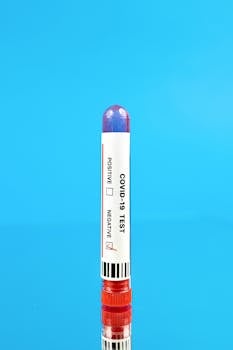PWG Business News: Your Gateway to Market Intelligence
PWG Business News is committed to providing real-time updates and expert-driven insights across various industries, including technology, healthcare, finance, energy, automotive, and consumer goods. We deliver carefully curated news, financial reports, and research-based updates, helping businesses and professionals stay informed and competitive in today’s dynamic business environment.
Our News section covers industry-shaping events such as market expansions, new product launches, mergers and acquisitions, policy shifts, and corporate earnings, offering a strategic advantage to decision-makers seeking actionable intelligence. By bridging industry leaders, stakeholders, and professionals with data-driven content, we empower our audience to navigate the complexities of the global market with confidence.
PWG Business News: Keeping You Ahead in the Business World
At PWG Business News, we deliver timely and credible business news, covering global market trends, economic shifts, and emerging opportunities. With comprehensive coverage spanning healthcare, technology, telecommunications, utilities, materials, chemicals, and financials, our platform provides accurate, well-researched insights that drive success for executives, investors, and industry professionals alike.
Whether you're tracking regulatory updates, innovation trends, or strategic collaborations, PWG Business News ensures you have access to high-quality, data-backed reports that enhance brand visibility, credibility, and engagement. Our mission is to keep you ahead by serving as your trusted source for impactful industry news and market intelligence.
Stay informed with PWG Business News – your gateway to the insights that shape the future of business.
Health Care

In a groundbreaking move to address the escalating threat of fungal infections, the World Health Organization (WHO) has released its first-ever comprehensive reports on the diagnostic tools and treatments for these diseases. These reports highlight a critical shortage of effective medicines and diagnostic methods, especially in low- and middle-income countries, emphasizing the need for innovative research and development to combat these often-deadly infections.
Fungal infections, including those caused by Candida, Aspergillus, and Cryptococcus, are increasingly becoming resistant to treatment, posing significant risks to people with weakened immune systems, such as those undergoing chemotherapy, living with HIV/AIDS, or who have had organ transplants. The WHO's initiative aims to galvanize global efforts to improve fungal disease management and reduce the alarming mortality rates associated with these infections.
Fungal infections affect millions worldwide, with alarming estimates suggesting an annual incidence of 6.5 million invasive fungal infections and approximately 3.8 million mortalities. Of these deaths, about 2.5 million are directly attributable to these infections[4][5]. The economic burden is also substantial, with costs of treatments and hospitalizations running into billions annually[3].
Some of the most lethal fungal infections include:
The WHO's reports outline the severe deficiencies in both diagnostic capabilities and treatment options for fungal diseases. Key findings and recommendations include:
To combat these challenges effectively, the WHO suggests several critical interventions:
The WHO has also established the Fungal Priority Pathogens List (FPPL), categorizing pathogens into critical, high, and medium priority based on their public health threat and research needs[2]. This list guides research and policy, ensuring that efforts are focused on the most dangerous fungal pathogens.
Addressing the growing threat of fungal infections requires a multifaceted approach, involving policymakers, researchers, healthcare professionals, and the public. By investing in research and development, improving diagnostics, and enhancing public health interventions, it is possible to combat the rising tide of antifungal resistance and reduce the devastating impact of fungal diseases on global health.
The WHO's first-ever reports on fungal infection diagnostics and treatments serve as a call to action for urgent innovation and collaboration. As the world grapples with the increasing burden of fungal diseases, it is imperative that we prioritize research, develop better diagnostic tools, and create more effective treatments to save millions of lives threatened by these infections each year. The future of fungal disease management hinges on our ability to innovate, educate, and act collectively against this rising global health threat.